INTERVIEW: Chuck Palahniuk on Flash Mobs, Fame and Why His Fans Are Literally Passing Out
By Andrew Phillips Posted in Interviews on September 14, 2020 0 Comments 8 min read
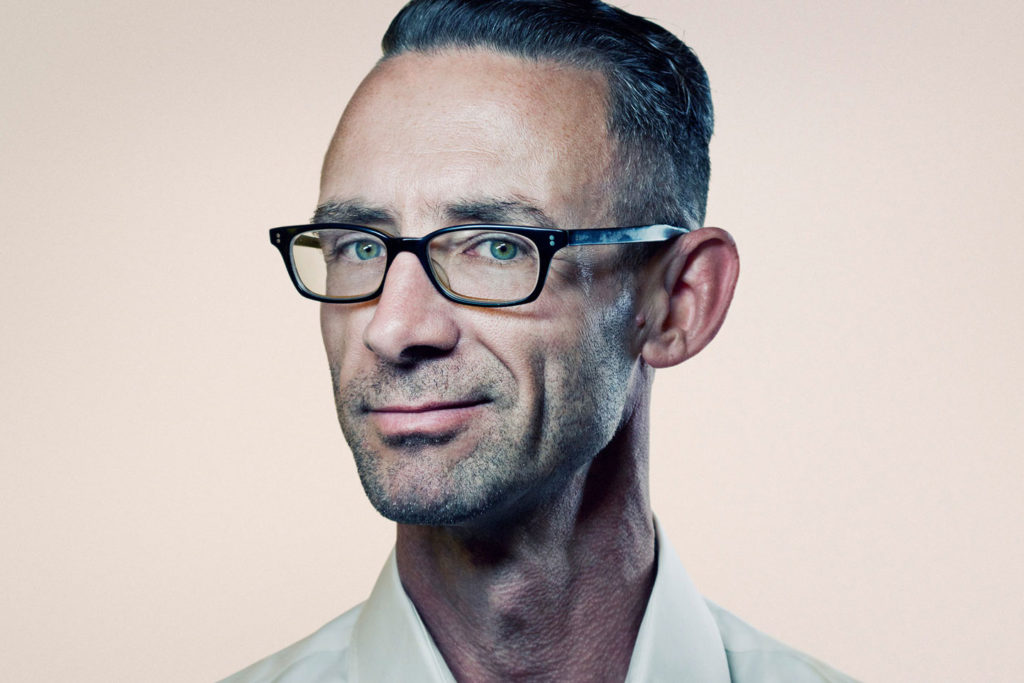
Bent bodies lay in wait, heads down, arms raised, a homage to the scaly beast. Edged with fuzz, the pained static of a speaker worn beyond use, a snarl surfaces. The creature’s mouth jerks open. 600 bodies writhe in unison, turning as the growl is released.
I’m not so much cowering, as kneeling, knees on the ground, watching as others lean back, heads tossed in fear. I watch as a young woman wade through the sea of crouched bodies, her eyes fixed with rage. I see smudges on her yellow nametag. “Tamara” is wondering what the hell is going on in her store and why 600 people have dropped by the Times Square Toys R’ US to make eyes at her Jurassic Park installation.
What I’m wondering is if this is all really happening, or if maybe I’ve just been watching to much Fight Club. Needless to say, New York’s “flash mobs” are totally Chuck Palahniuk’s thing, at least they would be if he lived in New York.
Chuck was manufacturing mischief with the Oregon chapter of the Cacophony Society well before he penned his cult hit “Fight Club.” (For those of you not in the know, the Cacophony Society is a loosely affiliated group of jokesters who stage large-scale pranks.)
ays gone by? Well, sort of. Palahniuk’s a little busy with work these days. His fame’s been on the rise since David Fincher made “Fight Club” a big-screen hit. Four books in the last three years, all to wet the lips of his ever-growing fan base. But what about when he’s not writing bestsellers – his last three novels “Choke,” “Lullaby” and the recent “Diary” have all made the list – what’s this guy up to then? Palahniuk still up for a bit of mischief, but these days he lets it come to him.
Palahniuk spoke to The Alcove from the road, in the middle of his exhaustive “Diary” book tour. He seemed tired, but from the sound of things, he’s not the one who has to worry about passing out.
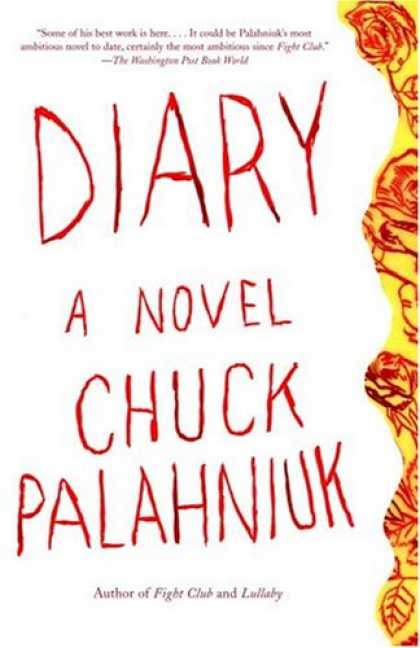
Chuck Palahniuk: Have you heard what’s been happening to people at the events? (laughing) It’s great. We’re up to 23 people who have fainted.
The Alcove: You’ve had 23 people fall over? Is this gratifying to you as a writer, or scary?
CP: It was scary at first. It freaked me out. But now it feels really good. People are just dazzled. It’s a nice break in the middle of the event.
TA: How are you keeping up this pace? You’re always on tour. It seems like you always have a new book on the stands.
CP: Its like asking a junkie “Why do you do so much Heroin?” It’s because I really, really like to do it. I’m compulsive about it.
TA: What resonates about the characters in “Fight Club?” People show up to your readings dressed as disgruntled waiters. Even the supporting characters seem to have made their mark.
CP: It was a social model for men to come together to talk about their place in the world.
TA: But it’s a little different isn’t it? I mean it’s a model where men come together to fight.Chuck Palahniuk.
CP: It just happened to be in the context of fighting. I couldn’t sell a book that was called “Play Club,” but I really thought of it as playing the way dogs play. We just don’t have a lot of these social-model books for bringing men together.
TA: But how can we create those spheres? Is there a way or has American culture become too stagnant?
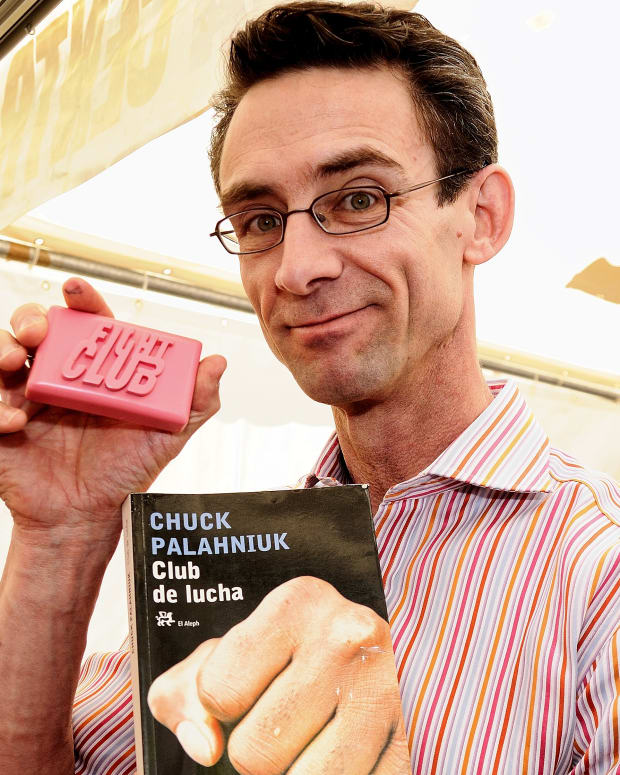
CP: In a way [social spheres] are constantly being reinvented in what appear to be arbitrary ways, like the flash mobs. The most touching thing about the flash mobs, or the Cacophony Society’s Santa Rampage, is that they’re just arbitrary ways for people to come together and be together with other people.
TA: What’s a Santa Rampage? Do you just dress as Santa and wreak havoc?
CP: The first year I did it, it was a three-day thing. It started with the storming of a big outdoor market. Then we ate breakfast at some guy’s house. Santa’s just packed this house, filled the yard. Then it went to roller-skating, all these Santa’s drunk on skates. Then all the Santa’s had to go to a mall to join hands and conduct a seance: Wow
CP: But the police and the swat team showed up and denied us access to the mall. So it was a big showdown between these face shield people and these Santas. Being in the midst of that I thought “If I wrote this, people would never believe me.” It was so bizarre and thousands of children must have been watching.
TA: Who won?
CP: It lasted like twenty minutes. The Santas stood on one side of the street and sang Christmas carols and did the wave up and down the blocks. The police were on the other side and all these kids were watching. Finally a commuter train pulled up. All the Santa’s had whispered that when the train pulled up we were supposed to break ranks and get on the train to escape the police. From there the Santas went to the city center and did a lot of obscene Christmas caroling.
TA: Do you have a lot of fans telling you their stories? It seems like your books would inspire that kind of thing.
CP: Oh my gosh yes. They come up and they tell me their stories, tell me about their heartbreaks. They tell me their diseases, everything. They’re not telling them in a “pity me” way. They tell them as a funny story instead of a tragic story. They’re not stopped by them. I find that really touching.
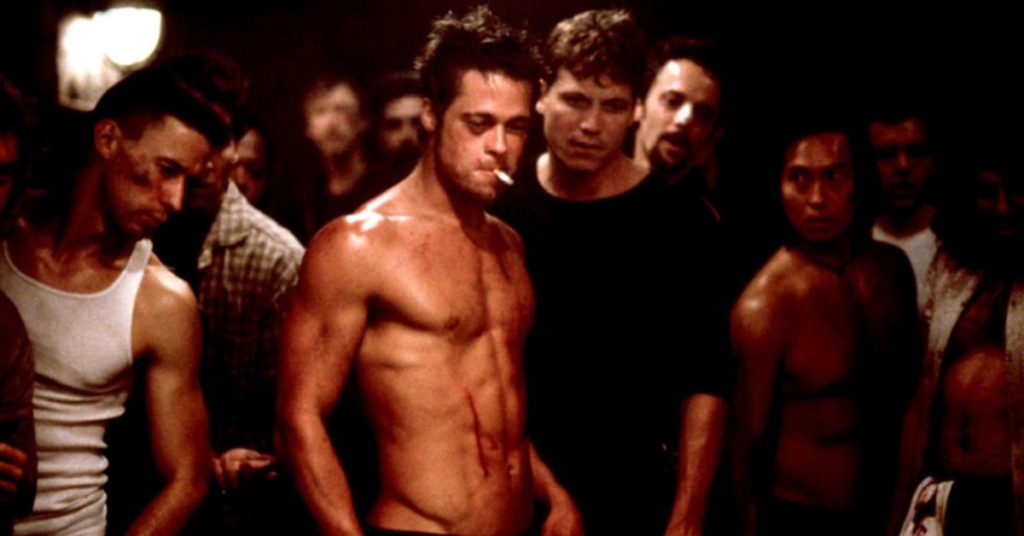
TA: Any examples of confessions of, lets say, unsavory behavior?
CP: A young man came up before my reading in Boston and asked if I’d sign his book. He said he really liked the fact that I wrote about waiters doing stuff to peoples food because he’d worked in a five-star restaurant and they did stuff to celebrities’ food all the time. I said “Tell me one celebrity” and he said he couldn’t. I said I wouldn’t sign his book until he told me.
TA: What did he say?
CP: He gets really quiet and he goes, “Margaret Thatcher has eaten my sperm.” I started laughing and he just stood there with his fingers spread out and said “At least five times.” It just cracks me up. These things that we want to pretend don’t exist.
TA: Do you feel awful hearing that? I mean isn’t that a pretty bad thing?
CP: No I don’t. I feel it does more bad that we don’t acknowledge these stories.
TA: So people need to be more open?
CP: Openness sort of disempowers them. It makes them a clichŽ, not such a dramatic, grand gesture. That takes away their power and I think, consequently, they won’t happen.
TA: Any other weird things happened on this book tour?
CP: In San Francisco, this last time around, the Cacophony Society built this huge wooden barricade that covered the whole front of the library where I was going to read. So they had to arrive early and dismantle this wall thing. Then in the middle of this reading, the Santa’s charge in drunk and they spray me with whip cream and the bookstore people go nuts and start punching them. I finally slipped them fifty bucks and they left. I said “Go, buy drinks.”
TA: Are you worrying about people going to far?
CP: No. I can’t control that so I don’t worry about it. A lot of kids are scarring their hands now [an imitation of a scene in “Fight Club”]. They come in the line and their hands are all wrapped up. So they’ve got a scar. They’ve got a good story to tell about it. So these people fall down at a reading. Everybody walks out with a great story. And its not something they sell on TV.
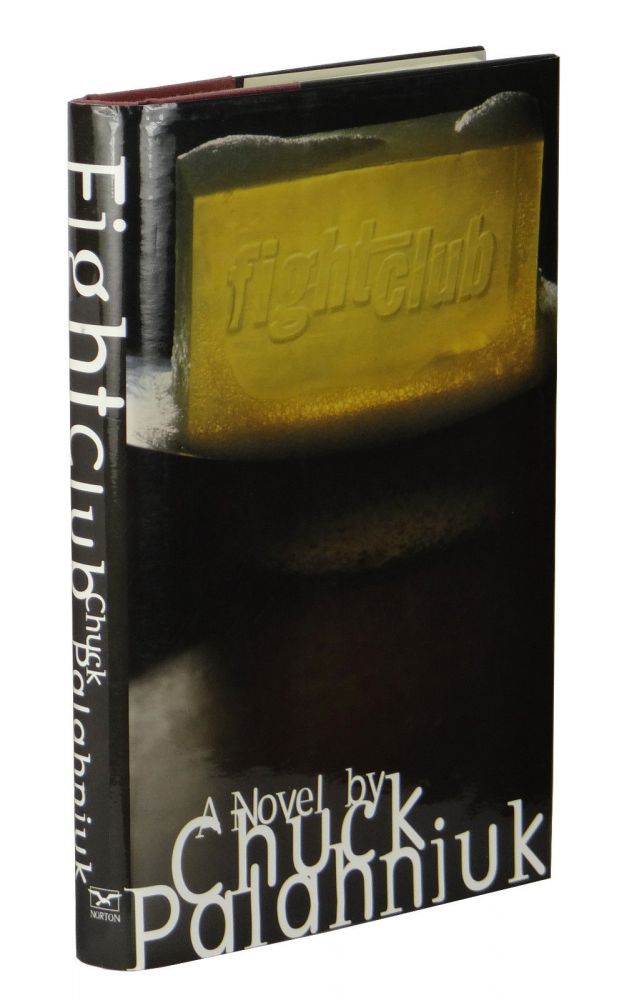
TA: Are you worried about this all becoming too much? It seems like you’re getting there already.
CP: At most of my readings seventy to eighty percent of the people have never been to a book event. If they see this book event as a great story with rampaging Santas and whip cream and fist fights their gonna come back.
TA: They’re also going to be disappointed by any other book event they ever go to.
CP: (laughing) Not my problem.